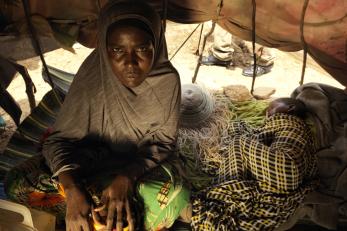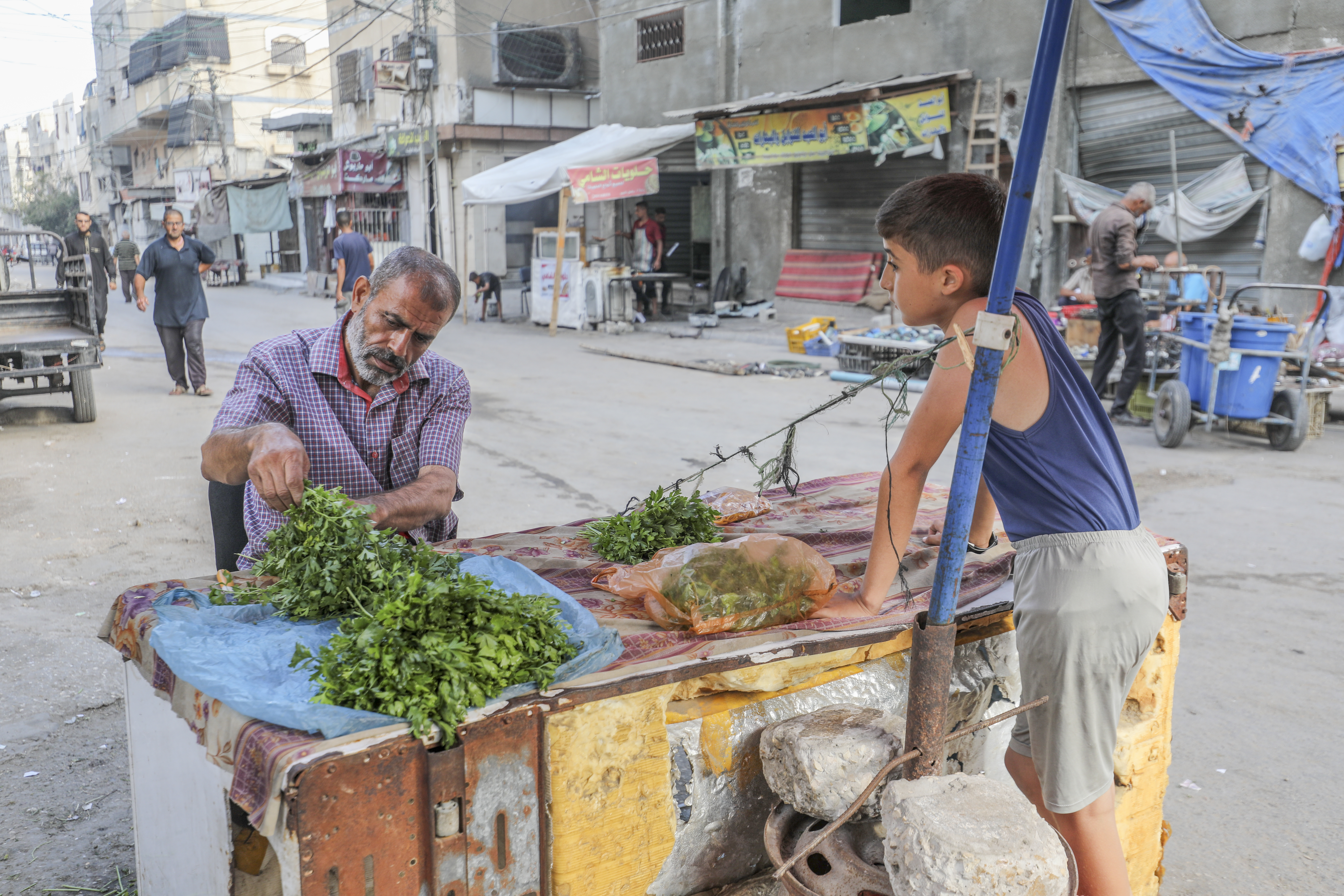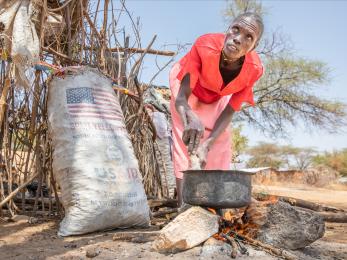Is global hunger a national security concern? It’s complicated.

The path to solving hunger starts with peace — not because of national security, but because it's the first way to help those who are hungry.
Global hunger is on the rise for the first time in decades, linked to violent and metastasizing conflicts in places like South Sudan, Yemen and Northeast Nigeria — each of which faced famine or near-famine conditions last year. The causal relationship between conflict and hunger is well established, but a newer narrative is emerging in Washington, D.C., which frames global hunger as a threat to U.S. national security.
I recently participated in a discussion at a Washington-based think tank about whether hunger and famine were increasing global instability and should be considered a “national security” issue for the United States. I shared the stage with a number of global hunger and national security experts, including a retired Lieutenant General from the U.S. Marine Corps.
On the one hand, this conversation is welcome: It elevates the global hunger agenda and engages stakeholders well beyond those who have traditionally cared about how to end it. On the other hand, there are two reasons to be cautious about this narrative. First, if hunger is viewed through a national security prism, the danger is that the United States will remain indifferent to suffering in places where U.S. national security interests are not at stake. Acute hunger — like we see in the countries now verging on famine, including parts of Nigeria, Yemen and South Sudan — is for us at Mercy Corps first and foremost a humanitarian issue.
We believe the global community, including the U.S., should respond based on humanitarian need. A starving child is a call to action — always — but even more so when food is being used as a weapon of war. We see this happening in a number of countries around the world today.

Second, we know that alleviating hunger by itself will not bring peace to regions beset by crises today, nor will it improve U.S. national security. Over the course of the last five years, our research tells us that the main motivation for people to take up arms is related to deep dissatisfaction with how they are governed. From Somalia to Nigeria to Mali and beyond, we find motivations are less tied to improving people’s material need — including their access to food — and more to their experiences of injustice at the hands of their governments. They perceive their communities as marginalized, singled out for discrimination and poor treatment.
Well-established “technical” solutions to addressing hunger, such as treating malnutrition or increasing farm production of nutritious foods, are insufficient to address this problem. We have to help mend the relationship between the citizen and the state by looking at issues of governance and equity.
A starving child is a call to action — always — but even more so when food is being used as a weapon of war.
Mercy Corps is increasingly focused on weaving peace outcomes into our relief and development work. So how can we effectively engage citizens who are in conflict with each other or with their government in meaningful dialogue that reestablishes trust and a willingness to seek peaceful solutions? We know that young people are key change agents in these fragile and food-insecure places. In Somalia, we found that education can reduce support for violence among youth by fueling their optimism for the future and their belief in government. Civic engagement reduced support for violence even more.
Today, conflict drives 80 percent of all humanitarian need — including emergency food assistance. The root causes of those conflicts are complex and well beyond food insecurity as a driving force. Those of us who work in these settings need an improved understanding of those forces and how our work can help address them.
But humanitarian and development actors cannot work in a vacuum. We urgently need the engagement of top diplomats in the U.S. and other countries to bring warring parties to the table and identify bold diplomatic solutions — not because hunger drives conflicts that we associate with our national security interest, but because peace is the first way to help those who are hungry.


